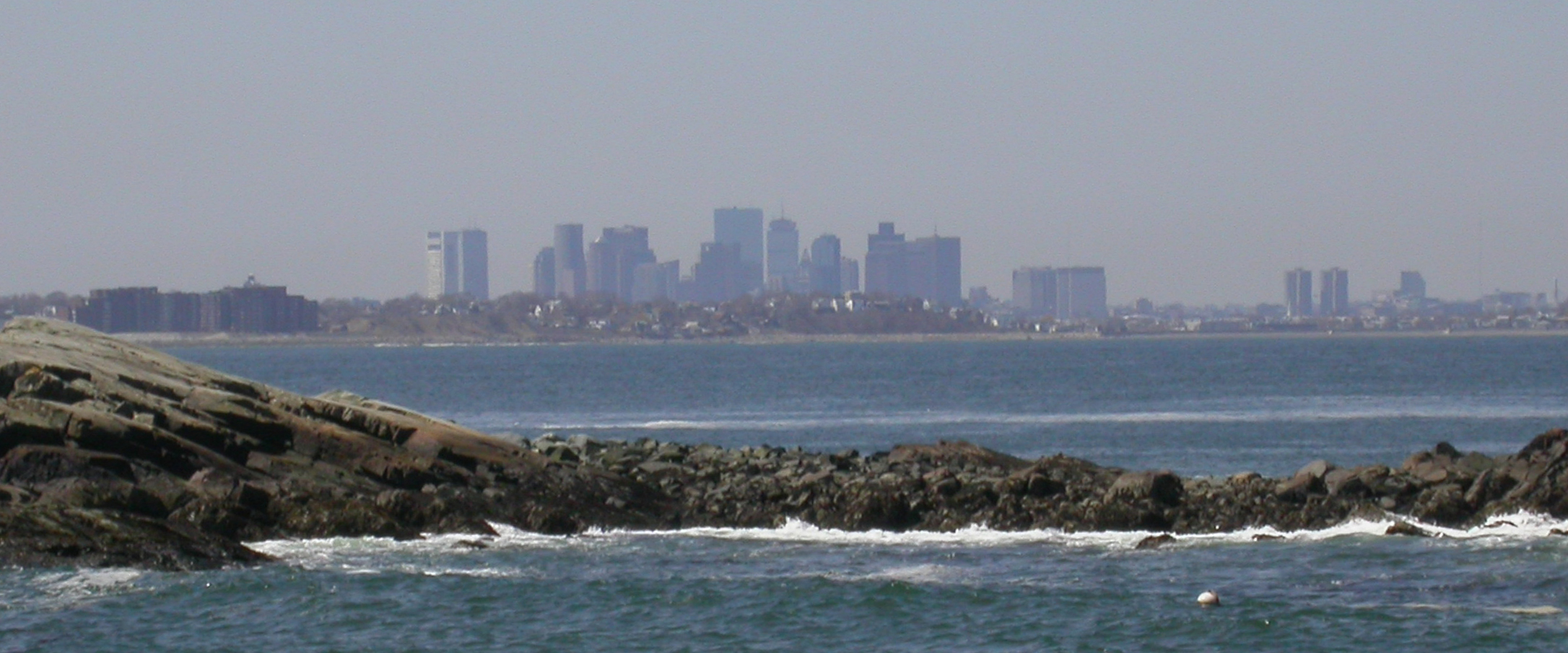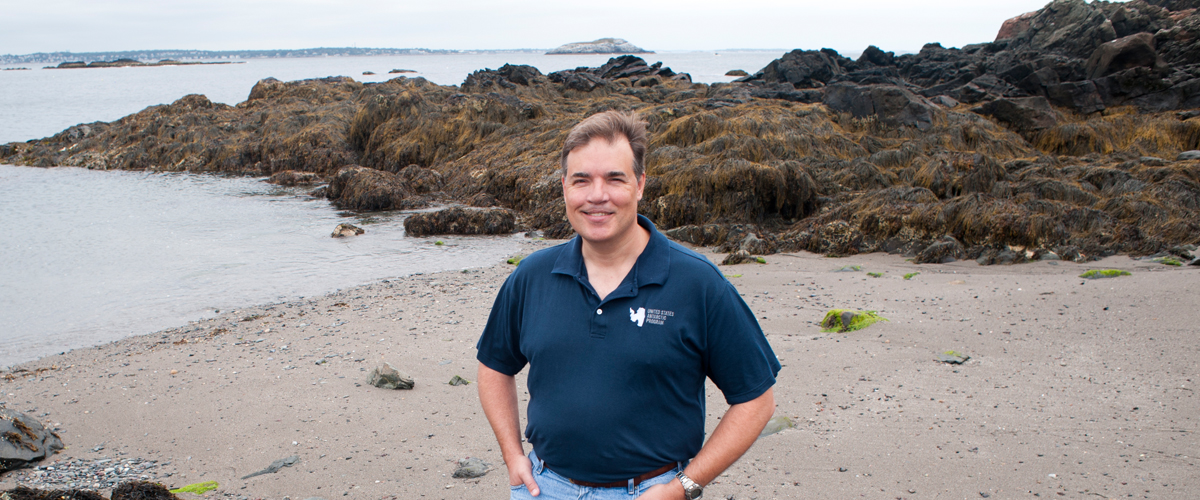Brian Helmuth, Professor of Marine and Environmental Science, sits down with the College of Science Graduate Program staff to talk about his research at Northeastern University.
Tell us about your current research.
Work in my lab focuses on understanding the factors that make coastal ecosystems vulnerable to environmental change, and how we can use that information to help guide adaptation to climate change. One of our most recent projects – a collaboration with scientists in Israel – uses aerial drones to map the topography of shorelines, and relates that information to how intertidal communities recover following heat waves. We also develop tools based on virtual reality environments that help people to understand how climate change will affect their lives and those of others around the planet.
What drew you to your field?
Honestly, I think I became a marine biologist as an excuse to go scuba diving and play in tide pools. My absolute favorite thing to do as a kid was to wander in the woods, and I lived for our annual trips to the ocean. It wasn’t until college when the intellectual appeal of the career really grabbed hold. I was very fortunate and a faculty member named Drew Harvell gave me an opportunity to do research in her lab. I really became enamored with the way that non-human creatures experience their world, and the ways that we can use science to understand those interactions.
What do you like most about being a faculty member at Northeastern?
I love the energy and optimism of the students. As a climate change scientist it is sometimes all too easy to get depressed given all of the impacts we humans are having on the natural world. But frequently, when I talk to Northeastern undergrads and grads, their focus is on solutions, and how they can make a positive difference. My graduate students are WAY smarter than I am, and I really enjoy watching them tackle scientific challenges, and think about the ways that they can share them with the world.
What is your favorite part about Northeastern?
Many universities are suddenly waking up to the fact that they need to partner with people and organizations outside of academic circles, but Northeastern has this built into the DNA of the institution. It’s one of the main reasons why I decided to move here four years ago. I also have really great colleagues. We have stuck to a “no jerk” rule when hiring faculty and it has really worked – I have lots of fun working with my colleagues!
What is your favorite part about Boston?
I really like the openness – it’s where America started and I think it still carries that spirit. While we hear so many in the U.S. running away as fast as they can from all forms of diversity, Boston embraces it and I think that makes us incredibly resilient. And a lot more interesting.
What advice would you give to new and current COS graduate students?
This is an incredibly stressful time to be a graduate student in science, given the apparent disregard for science and facts that we see in the White House. But, I think it is really important to remember that we have lots of allies with common goals, both in academia and without. My advice would be to keep doing what you love, and use this as an opportunity to branch out and develop new partnerships with people and organizations that may have seemed a distant reach only a few months ago.

Brian Helmuth is a professor of Environmental Science and Public Policy in the College of Science based at the Marine Science Center in Nahant, MA.

